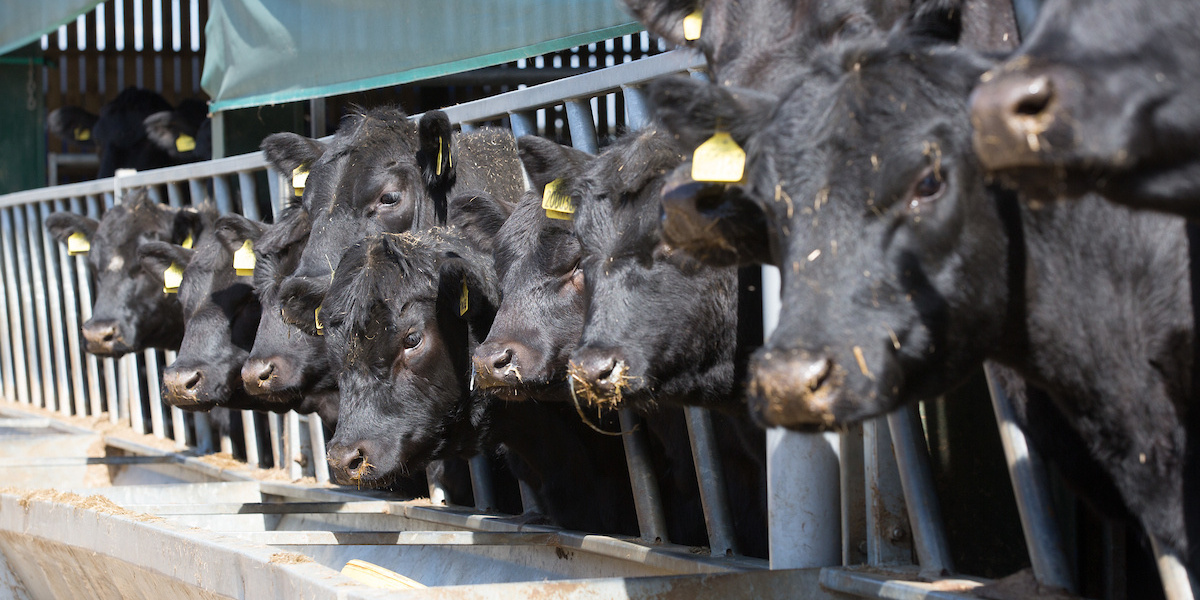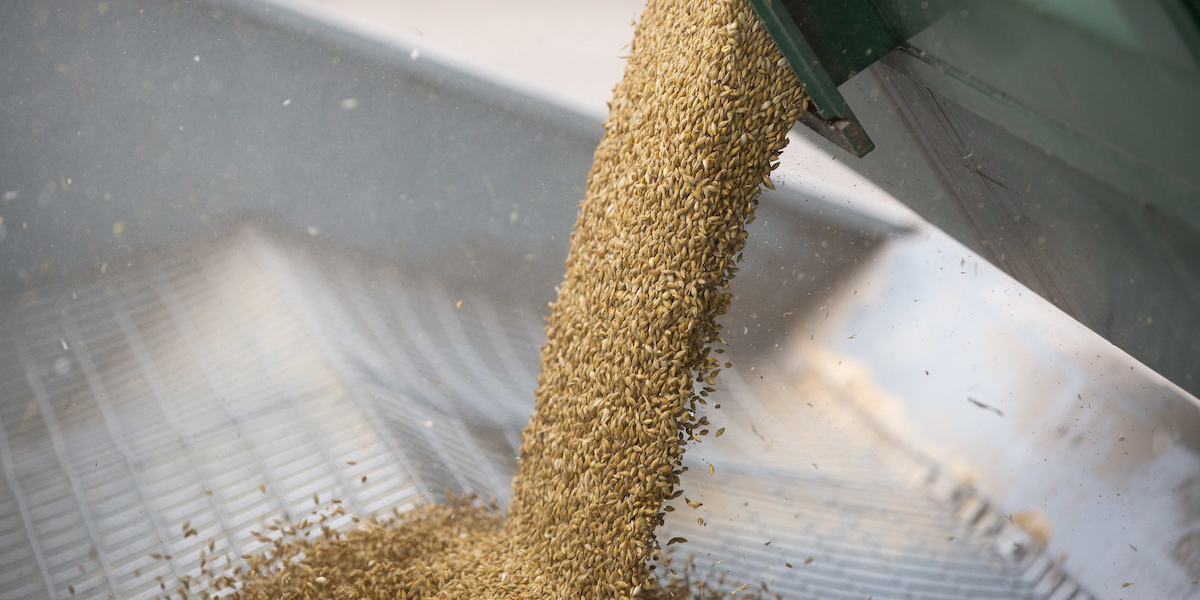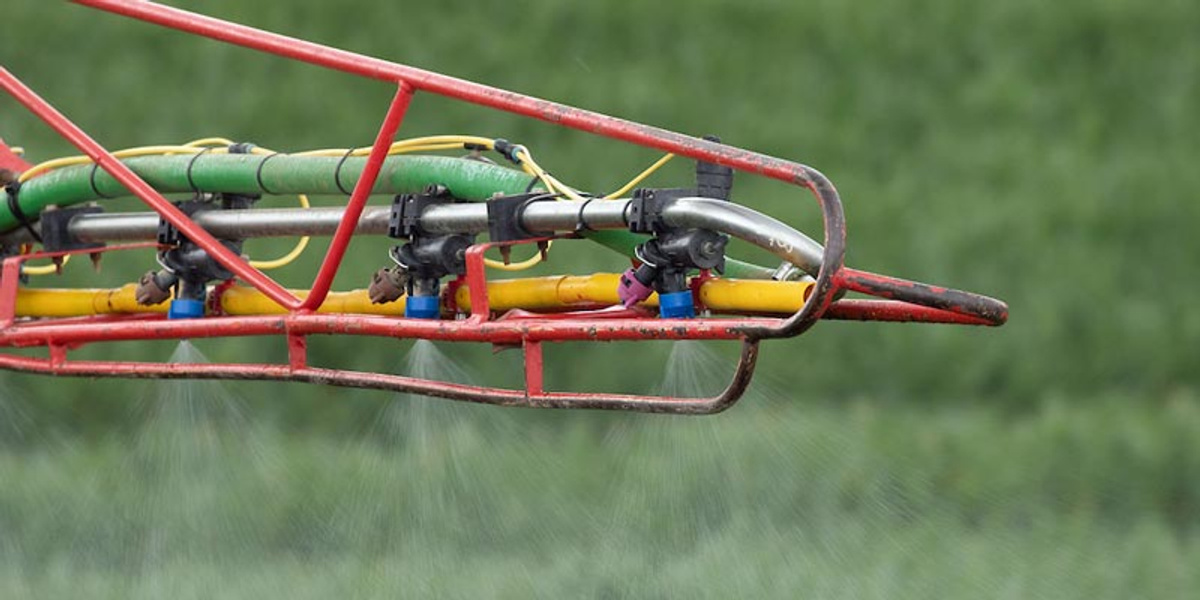Summary - October 2025
Publish date
17 10 2025
Government and Policy Engagement
This report highlights a major Cabinet reshuffle with new ministers appointed to the Department for Environment, Food and Rural Affairs (Defra), and AIC has already met the new Minister in Defra to outline priorities. (1.1). AIC’s annual parliamentary reception (9 September) brought together Members of Parliament (MPs), Peers, and industry stakeholders, reinforcing collaboration between the Government and the agri-food sector (1.3). AIC also participated in party conferences and lobbying events to advocate for Member interests (1.3).
Trade, Regulation and Supply Chain
Much focus is being taken by the European Union–United Kingdom Sanitary and Phytosanitary (EU–UK SPS) agreement (1.2), which it is expected to remove trade barriers but will contain trade-offs. Meanwhile, geopolitical events, a challenging UK harvest, and regulatory changes such as the proposed one-year delay to the European Union Deforestation Regulation (EUDR) (2.1) present challenges to Members. AIC is addressing export issues related to Maximum Residue Levels (MRLs) (3.1) and working with Government over supply chain fairness and contract clarity (3.3, 10.1).
Sustainability and Carbon Reporting
AIC is advancing its Sustainability Action Plan (SAP) (1.7), meeting with climate and water policy stakeholders, and improving carbon data for fertilisers and animal feed (1.8, 6.2). AIC is also working with the Climate Change Committee (CCC) to influence national reporting and policy (1.8). Updated UK regional greenhouse gas emissions values have received European Commission technical clearance, allowing stakeholders to use regional rather than farm-level data for compliance and reporting (3.4, 6.2).
Devolved Focus: Scotland, Wales and Northern Ireland
Wales and Scotland both have elections scheduled for 2026, and focus will turn to manifesto lobbying messages (7.1, 8.1). Wales is launching the Sustainable Farming Scheme in 2026, with funding transitions and stakeholder engagement ongoing (8.1). Northern Ireland is focused on nutrient management (9.1), EUDR (9.3), and carbon calculator development (9.5). In Scotland, preparations for the annual AIC Scotland dinner continue, with collaboration on supply chain issues and agricultural policy change (7.1, 7.3).
Cross Sector Policy
1.1 Political Update
In early September, a full Cabinet and Ministerial reshuffle took place. This has led to the Department for Environment, Food and Rural Affairs (Defra) having a new Secretary of State (Emma Reynolds) and a new Minister of State for Farming and Food Security (Dame Angela Eagle). AIC has written to both the Secretary and Minister of State, welcoming them to their new roles. Mary Creagh, Emma Hardy, and Baroness Hayman will remain as Parliamentary Under-Secretaries of State, with their respective portfolios unchanged. Meanwhile, Daniel Zeichner MP, who previously served as Minister for Food Security and Rural Affairs, has returned to the backbenches. The reshuffle is not expected to alter existing policy priorities, although there may be changes to timetables or delivery dates as Ministers are briefed.
In Mid-October, AIC met with the new Minister for Farming and Food Security Dame Angela Eagle MP, to sit down and discuss AIC’s priorities. These included the implementation of a UK–EU Sanitary and Phytosanitary (SPS) agreement, uncertainty over expiring Countryside Stewardship Mid-Tier agreements, wider dynamics within global trade, the role of AIC members in providing advice on farms, the importance of food and feed safety and the need for confidence to provide investment into the sector. The Minister underlined the Government’s priorities regarding growth, inward investment and promoting the circular economy.
1.2 EU-UK Sanitary and Phytosanitary (EU–UK SPS) Agreement
In September, the European Commission issued a draft mandate to negotiate a SPS agreement with the United Kingdom. This follows the summit in London on 19 May. Once this mandate is agreed by EU Member States, negotiations can formally begin. The EU position contains few surprises. There is an agreement to remove all SPS-related phytosanitary and export health certificates, with recognition of the costs and impacts of checks and documentation for trade in both directions. As expected, dynamic alignment of SPS standards between the United Kingdom and the European Union is sought, including removal of SPS checks between Great Britain and Northern Ireland. Few exemptions are envisaged but may be permitted if they do not result in lower standards in the United Kingdom than in the European Union, prevent United Kingdom market access, or allow United Kingdom products into the European Union market if not produced to European Union rules. With negotiations set to begin, the implementation period will be equally important, given the divergence that has already taken place across a number of sectors.
As part of ensuring Members are fully informed, AIC will host a Members-only webinar on Friday, 24 October 2025 at 14:30 to update on the EU-UK SPS agreement. The session will explain the implications for businesses importing or exporting goods to the European Union (EU) and Northern Ireland, including United Kingdom (UK) Government objectives, the current state of play, products in and out of scope, and likely timelines for implementation. AIC has also published a briefing note for members, which can be found here.
1.3 AIC Lobbying Activity
On 9 September, the AIC’s annual parliamentary reception took place in London, hosted in the House of Commons by Helena Dollimore MP. The event welcomed over eighty attendees from across the UK and EU agri-food supply chains including AIC Member businesses, farming representatives, trade bodies, MPs, Peers, and officials from Defra, Department for Business and Trade (DBT), Natural England, Animal and Plant Health Agency (APHA), and the Food Standards Agency (FSA). The reception also featured a speech from Alistair Carmichael MP (Environment, Food and Rural Affairs (EFRA) Select Committee Chair), who offered strong support for the agri-food sector and emphasised the importance of collaboration between industry and the Government to secure the future of UK-EU agri-food supply chains.
AIC attended all the main party conferences around the UK this autumn. This includes meetings with MPs and their staff, whilst attending various fringe events and speaking appearances on panel discussions. Attending such events provide a platform for further engagement with parliamentarians into the autumn and 2026.
1.4 Budget 2024 and 2025
Following last year’s Budget, concerns remain regarding changes to Business Property Relief (BPR) and their impact on wider inflation. As part of ongoing advocacy, AIC will participate in a lobbying event hosted by Family Business UK in Westminster on the same day as Budget 2025 (26 November), alongside trade bodies from various business sectors. Member businesses affected by BPR will also be in attendance, building upon the survey work conducted earlier in the year.
1.5 US Trade and Bioethanol
In August, the Government announced it would not financially support the UK bioethanol sector following the US-UK Trade Agreement of 8 May. Despite extensive representation, no solution was found, leading to job risks, reduced demand for UK-grown wheat, and the loss of domestically produced animal feed and carbon dioxide. As part of this announcement, the Government stated that it would open a call for views on the future of the Renewable Transport Fuel Obligation (RTFO), with the possibility of allowing UK-produced bioethanol to be used within the UK’s Sustainable Aviation Fuel (SAF) mandate. AIC is now working with other stakeholders in the SAF supply chain to ensure the best evidence is put forward for the review.
1.6 Sustainable Farming Incentive (SFI)
A ministerial reshuffle at Defra delayed announcements on the reformed Sustainable Farming Incentive (SFI) scheme, heightening concerns about continuity of agri-environment support in early 2026. On 15 October, it was finally announced that it will offer one-year extensions to over 5,000 farmers in Mid-Tier (CSMT) agreements due to expire on 31 December 2025. AIC is actively engaging with Defra about this and to clarify the 2026 SFI rollout.
Defra has launched new guidance for the Countryside Stewardship Higher Tier (CSHT) scheme, now open by invitation for up to 1,200 farmers. It includes new actions for water quality, flood resilience, and agroforestry. Defra’s Farming and Countryside Programme Annual Report (2024–2025), released on 10 September, confirms £2.6 billion allocated to farming support, with a planned 150% increase in Environmental Land Management (ELM) funding by 2029.
Two new Farming Innovation Programme grant competitions totalling £12 million open in September and October, supporting research and development partnerships and feasibility studies as part of the Government’s £200 million agri-tech investment by 2030.
1.7 AIC’s Sustainability Action Plan
AIC has continued to promote the Sustainability Action Plan (SAP), meeting with the Energy and Climate Intelligence Unit (ECIU) and Defra’s Deputy Director for Clean Waters, with further meetings planned.
1.8 Carbon Reporting
AIC is working with carbon calculators to improve how emissions data for fertiliser products is assessed and shared. Separately, AIC is developing a dataset of default values for animal feed for a range of species at different growth stages, which has been welcomed by carbon calculators and other data platforms. AIC is also working with other agricultural stakeholders to increase engagement with the Climate Change Committee (CCC) to explore how we can influence their reporting.
1.9 Defra ‘Addressing Water Pollution from Agriculture’ Stakeholder Group
AIC is part of Defra’s Stakeholder Group, which is reviewing the three agricultural water regulations to inform a regulatory change. It is currently unknown if this will fall under the Water Reform Bill or another mechanism. AIC has advocated for consolidation and alignment, moving to a farm nutrient budget approach and having a stronger role for Fertiliser Advisers Certification and Training Scheme (FACTS) Qualified Advisers. In parallel, AIC is working with agricultural stakeholders to submit a joint industry proposal to Defra.
Animal Feed
2.1 European Union Deforestation Regulation (EUDR)
The European Commission proposed a further 12-month delay in the implementation of the European Union Deforestation Regulation (EUDR) in September. The Commission cites unresolved challenges with the information technology (IT) system needed to manage the vast data volumes required for compliance as the basis for the delay. To enact the delay, the Commission must propose a regulation for approval by both the Council of the European Union and the European Parliament. While formal sign-off is still required, it is widely expected to be accepted.
The European Feed Manufacturers' Federation (FEFAC) has welcomed the decision to postpone the EUDR implementation, noting that the market availability of EUDR-compliant soya remains insufficient to meet the European Union’s annual demand of over thirty million tonnes, despite significant efforts and investments made by supply chain partners.
FEFAC urges the European Commission, the Council and the European Parliament to include EUDR in the Omnibus simplification package. They make the following recommendations:
- Permitting a form of mass-balance chain of custody system under EUDR.
- Implementing a phased enforcement approach to prevent market disruption and facilitate a smoother transition for operators as new compliance obligations take effect.
- Establishing a harmonised approach to implementation by competent authorities in Member States
AIC sees the proposed one-year delay to the implementation of EUDR as a pragmatic and necessary step to avoid disruption and ensure EU supply chain readiness.
AIC and the AIC Sustainable Commodities Scheme (ASCS) Working Group will consider the implications of the European Union announcement for the development of the EUDR-aligned standard under the scheme and agree an appropriate course of action. Members can read the full briefing here.
2.2 Feed Material Supply through to Quarter 2 (Q2) 2026
Following discussions with Members, AIC has prepared a feed material supply market outlook which has been shared with all feed Members and representatives of livestock farming customers. The central message is to urge livestock producers to carefully consider their feed requirements through to late spring 2026 and to discuss these with their feed suppliers at the earliest opportunity.
A combination of geopolitical events, a challenging UK harvest, and an exceptionally dry summer in some regions has placed pressure on feed supply this autumn. Whilst the feed industry and livestock farmers are currently managing to balance nutrient requirements and supply, it is unusual to have to manage such pressures so early in the season.
Specific reference is made to reduced availability of locally produced DDGS (Dried Distillers Grains with Solubles), the impact of the dry summer on sugar beet pulp availability, and the added uncertainty resulting from pending deforestation regulations, trade negotiations, tariffs, and anti-dumping measures in the European Union for imports of Chinese amino acids.
2.3 Engagement with Food Standards Agency (FSA) on Register of Feed Additives and UK-EU SPS Negotiations
AIC, together with British Association of Feed Supplement and Additive Manufacturers (BAFSAM), British Equestrian Trade Association (BETA), and UK Petfood, have held a number of meetings with the Food Standards Agency (FSA) feed policy team to assess progress on rectifying the removals and revocations introduced to the Great Britain (GB) Register of Feed Additives resulting from amendments made to feed additive legislation in April 2025. Whilst significant progress has been made by FSA, there are many additives still missing from the Register.
More concerning is the anticipated lack of FSA-regulated product approval activity during the period that the UK/EU Sanitary and Phytosanitary (SPS) negotiations are under way. FSA has indicated that most, if not all, of their feed policy resource will be given over to preparing legislation for the agreement in 2027. The industry representatives have expressed their concerns that very few, if any, new additives will reach the market during this time and have set out priorities for approvals, which are:
-
FSA to complete the approval process for those additive applications already at-risk assessment or risk management stages.
-
FSA to prioritise new applications where those additives are already approved in EU given that a positive risk assessment opinion already exists.
-
FSA to put in place contingency plans should SPS negotiations take longer than anticipated or political events result in the further delay or cancellation of the agreement.
Combinable Crops
3.1 Maximum Residue Level (MRL) Alignment - Pulses
AIC is addressing an export issue where UK bean export consignments to the EU have exceeded maximum residue levels (MRLs) for Fosetyl-Al. As EU rules apply a single standard to all dried beans, rejections pose a trade risk. AIC is working with COCERAL, Health and Safety Executive (HSE), Grain and Feed Trade Association (GAFTA), and Global Pulse Confederation UK (GPC UK) to understand and resolve the situation. Residues exceed both Great Britain (GB) (2 parts per billion, ppb) and European Union (3 ppb) limits. Regulators advise that adjusting MRLs, not new product authorisation, is the route forward. HSE requires monitoring data from 59 or more samples to support a temporary MRL adjustment, with evaluation expected within 12-18 months.
3.2 Digital Passport
Since June, the Digital Passport Leadership Group (including AIC) has continued discussions with government stakeholders after submitting the business case and funding request for a Digital Grain Passport system to Defra. The group plans to meet the Minister in Defra to highlight the system’s benefits for traceability, efficiency, and supply chain data accuracy. It also remains focused on securing public sector funding for development. AIC continues to represent Members through its work in the Leadership, Development, and Data Groups, ensuring industry views are reflected and that the system supports future regulatory and market need.
3.3 Combinable Crops Supply Chains Fairness Review
In June, the Government announced it would launch a consultation into the combinable crops supply chain, to understand contractual practices and the pricing, supply, data sharing, and dispute resolution mechanisms used. It is expected that a public consultation will collect views from farmers and stakeholders, shaping Government understanding of supply chain operations. If required, legislation may be developed with industry input and further consultation. AIC has been working with Defra to clarify next steps, highlighting the longstanding role of contracts in the sector, unlike historic practice in other sectors. This initiative follows similar reforms in other sectors, including milk, pig, egg, and fresh produce regulations, as set out under the Agriculture Act. AIC expects a consultation to be launched in October or November, for a three-month period. AIC will provide guidance on the consultation including a webinar and draft response.
3.4 United Kingdom Updated Emissions Values (UK NUTS2) Receive European Commission Technical Clearance
The European Commission has granted technical clearance for updated United Kingdom regional (Nomenclature of Units for Territorial Statistics level 2, NUTS2) greenhouse gas (GHG) emissions values. These figures, based on the latest data and farming practices, allow stakeholders to use regional rather than farm-level values. Final legal validation is expected within three to six months, after which the full report will be published.
3.5 Farm Assurance Review
AIC has responded to a recent survey from the Farm Assurance Report to provide an update on the current position and work towards the actions publicised in January this year. Feedback was given regarding concerns about farm assurance standards for combinable crops, emphasising that imported crops meet equivalent legal safety standards through rigorous testing and international assurance schemes, while labelling responsibility lies with the Government and food chain end users. Regarding environmental standards, AIC highlighted that premiums for enhanced practices depend on market demand and direct agreements within the supply chain. Finally, AIC expressed a willingness to engage in foresight exercises on future environmental standards but notes no formal approach has yet been made. AIC continues to inform farming unions about imported grain and processes used in testing.
Seed
4.1 Pea Bruchid Risk
Pea bruchid has been confirmed for the first time in United Kingdom commercial crops, with cases in Cambridgeshire. Already widespread in Europe, the pest threatens severe quality and value loss, particularly for peas grown for human consumption. Warm, dry spring conditions likely enabled it to complete its life cycle in the United Kingdom. The Processors and Growers Research Organisation (PGRO) stresses vigilance to prevent permanent establishment and is creating an incidence log to track spread. Growers and traders are urged to inspect crops and report damage via the PGRO app with photographs for identification. A trade forum in spring 2026 will coordinate action, supported by PGRO-led advice.
4.2 Winter Bean Derogation
AIC is consulting Members on the potential need for a winter bean seed derogation to address concerns over low germination rates and possible seed shortages this season. Members are asked to provide evidence, including failed seed crop examples, germination test results, tonnages of named varieties, and confirmation of expected supply levels. This information will help assess whether a derogation request to Defra is necessary, potentially at a seventy percent germination threshold, though approval is not guaranteed. Members who consider supply sufficient are also encouraged to submit views to ensure the United Kingdom-certified seed sector is accurately represented.
4.3 Defra Proposed Changes to International Seed Testing Association (ISTA) and Organisation for Economic Co-operation and Development (OECD) Fees Consultation
The Animal and Plant Health Agency (APHA), on behalf of Defra and the Welsh Government, currently provides seed certification and sampling services free of charge. New proposals aim to introduce fees to achieve full cost recovery, shifting costs from taxpayers to service users. Suggested charges include £146.28 per OECD certificate, £61.05 to enter imported seed, and £213.30 for multiplication abroad agreements. For ISTA sampling, APHA proposes £127.60 for the first thirty minutes of a site visit and £63.80 for each additional fifteen minutes, including travel. AIC is consulting Members to assess potential business impacts and coordinate a united industry response.
4.4 Global Pulse Confederation (GPC)
AIC has joined the Global Pulse Confederation (GPC), the leading international body for the global pulses sector. This membership links AIC to a worldwide network of industry leaders, providing access to market insight, collaboration, and policy engagement opportunities. Benefits include global market tools, webinars, networking platforms, visibility in the GPC directory, use of its logo, and participation in international events and working groups. The partnership strengthens AIC’s role in global discussions on sustainable agriculture, trade, and food security, with pulses central to climate-resilient farming. AIC will engage actively in GPC activities to represent UK interests and support Members.
Crop Protection and Agronomy
5.1 Explaining Sector Members’ Views on European Union (EU) Reset to Policymakers
Members continue to raise questions about what the European Union–United Kingdom Sanitary and Phytosanitary (EU–UK SPS) agreement will mean for the availability of plant protection products and conditions of use. AIC has drafted an issues tracker document highlighting the best outcome for Great Britain (GB) and the implications if these outcomes cannot be agreed in the negotiations. Defra staff negotiating with the European Commission were invited to an AIC Members’ distribution depot at Faversham in Kent on 26 September. The aim of the visit was to discuss in more detail how various negotiated scenarios would impact United Kingdom agriculture and horticulture. Work will continue with policymakers.
5.2 Poly- and Perfluoroalkyl Substances (PFAS) and Plant Protection Products
Poly- and perfluoroalkyl substances (PFAS) are a large group of chemicals with very differing properties and are used across a wide range of industries and applications. Some PFAS are very persistent in the environment and have been called ‘forever chemicals’ in some media. However, persistence varies greatly across what is a large group of chemicals. There is increasing attention on PFAS use and detections in the environment. This is in part due to the decision by the Danish Government to withdraw plant protection products containing one of five active substances which had the potential to break down to form a short-chain PFAS, trifluoroacetic acid (TFA). This was due to specific Danish legislation around groundwater and is not an EU-wide approach.
In the UK, water companies and the Environment Agency monitor for PFAS. Monitoring of PFAS and TFA in surface water has also been undertaken by charities and researchers across the European Union, including Great Britain. The findings show that PFAS/TFA can be found at many of the sites tested. Data analysis is still ongoing to understand the sources, as one of the highest levels detected was in a large urban area and other areas where use of plant protection products (PPPs) is minimal. The Health and Safety Executive (HSE) has identified firefighting foams as an area for action following an assessment of the most appropriate regulatory management options to address the risks to the environment. The sector is following the PFAS situation closely and liaising with United Kingdom regulators and European Union counterparts to understand the EU situation.
5.3 Positive Feedback from AIC Engagement with Policymakers
In July and August, AIC Members hosted six events for policymakers and stakeholders across five trial locations in England. Altogether, forty-six stakeholders from Defra, Chemicals Regulation Division (CRD), Natural England, and the Agriculture and Horticulture Development Board (AHDB) attended events in Yorkshire, Northamptonshire, Cambridgeshire, and Lancashire. Attendees observed AIC Members’ work on cover crop selection, establishment and herbicide screening, Sustainable Farming Incentive (SFI) mixes, impacts of rotations on grass weed control, maximising the effectiveness of glyphosate, variety comparisons, and the use of biostimulants. In the horticulture sector, attendees heard about the difficulties of meeting exacting standards in contract specifications without access to a range of biological products and plant protection products (PPPs). Attendees were interested to see the various integrated pest management (IPM) techniques recommended by AIC Members and implemented by growers, as well as the complexity of choices that farmers and agronomists must make.
Fertiliser
6.1 Regulation
AIC has prompted a review of United Kingdom fertiliser regulations, with progress delayed until after Christmas to allow for more industry input. The focus is on clearer rules for organic-based products, biostimulants, and inhibitors. Formal consultation is expected in early 2026, with technical drafting to follow in partnership with AIC.
6.2 Fertiliser Market
European ammonia production continues to contract amid volatile gas prices ($2 per million British thermal units (MBTU), in the United States versus $11 in the European Union). Delays in United Kingdom spring fertiliser delivery are linked to late buying, an early spring, and Sustainable Farming Incentive (SFI)-related cropping changes. AIC has worked with farming unions to improve planning and communication, establishing meetings for better coordination.
6.3 Trade and Carbon Border Adjustment Mechanism (CBAM)
The UK remains committed to introducing a United Kingdom version of the Carbon Border Adjustment Mechanism (CBAM) for energy-intensive imports such as hydrogen, ammonia, and nitrogen fertiliser in 2027. AIC is active in stakeholder discussions, but Treasury officials favour keeping the quarterly rate-setting mechanism, advising market hedging on carbon pricing instead. There are concerns about misalignment with the fertiliser purchasing cycle and potential market disruption amongst smaller importers.
6.4 House of Lords Inquiry into Nitrogen
AIC contributed to an ongoing inquiry into nitrogen management, covering usage trends, emissions, recycling, and green ammonia. Northern Ireland and Scotland continue to lead with stricter manure, slurry, and mineral fertiliser regulations, including livestock reductions, large buffer strips, and monthly nutrient monitoring. AIC will host a lunch at the House of Lords in December to discuss the inquiry’s report and CBAM implications.
AIC Scotland
7.1 AIC Scotland Update
Preparations for the annual AIC Scotland Dinner (27 November) are progressing with a good attendance level so far. The Scottish Sector Committee meetings will be during the day prior, which will give the opportunity to discuss ongoing policy pertinent to Scotland. This will include time to consider the AIC Scotland Manifesto, which is being developed, for the Scottish Parliamentary elections in May 2026.
The Scottish Chair and Policy Manager engaged in positive discussions with Scottish Members of Parliament (MPs) at the AIC Westminster reception. A site visit has already taken place with AIC Scotland Members following the reception.
7.2 Scotland Stakeholder Engagement
The National Farmers Union Scotland (NFUS) presidential and policy team have been vocal, both publicly and privately, on the combinable crops supply chain over perceived unfairness regarding imports, prices and contractual issues on malting barley. The AIC team and Members have worked closely with NFUS to help inform on the topical areas and encourage open dialogue and understanding. Member businesses in Scotland have hosted members of the NFUS Combinable Crops Committee and policy team, both very well received. AIC policy team members have attended a roundtable along with the Agriculture and Horticulture Development Board (AHDB), Scotch Whisky Association and the Maltsters Association of Great Britain (MAGB) to consider the challenges. AIC will be attending the next NFUS Combinable Crops Committee in October. Separately, AIC initiated and attended a cross-policy meeting with NFUS where it was confirmed that NFUS are restructuring their policy team with an ambition of influencing supply chains more directly.
As an active member of the Food and Agriculture Stakeholder Group (FAST), AIC attended a roundtable with Baroness Minette Batters hosted by NFUS. Whilst Scotland is not in the direct remit of the profitability review, this was an opportunity to discuss within a Scottish perspective. AIC was able to remind those present of the importance of AIC Membership in the agri-food sector and the role Members must play in informing and delivering recommendations.
7.3 Scottish Government Policy and Engagement
The AIC Chief Executive and Scotland Policy Manager held productive meetings with Ian Muirhead (now a special adviser to the First Minister), Minister Fairley and Cabinet Secretary Gougeon. Discussions included ongoing agricultural policy change, EU–UK Sanitary and Phytosanitary (SPS) agreement, bioethanol and renewable fuels, sustainability, and precision breeding. There was recognition and encouragement of the input the AIC team and its Members can offer to support the Scottish Government in policy formation and delivery.
The Future Farming Investment Scheme (FFIS) has had a very high application level. The successful applicants will know by the end of September, and it is likely the business priority list will come into play. This has resulted in calls for an increased budget to provide more opportunity for farmers.
The main tranche of the annual Basic Farm Payment (BPS) and greening support payments for 2025 have been paid during September. This has highlighted the importance for farmers to understand the changes for 2026 and proposals for 2027. AIC Members will have an opportunity to provide guidance and advice on this at a farm level.
AIC Cymru
8.1 Wales Future Policy
Prior to the Royal Welsh Agricultural Show in July, announcements on the Sustainable Farming Scheme (SFS) were delivered by Huw Irranca-Davies to the Senedd (Welsh Parliament). The scheme comes into effect in spring 2026. Funding transition from the Basic Payment Scheme (BPS) to the SFS remains at £238 million. However, for those who do not join the scheme, there is a cliff-edge tapering of BPS by 40%, providing a strong incentive for farmers to join.
At the Royal Welsh Show, a Rural Payment Wales “ready reckoner” was announced as an online tool so that growers could input their farm details to obtain a rough calculation of the SFS payment for their own farm unit. General acceptance of the scheme is good, with farming unions supportive given their involvement in the ministerial roundtable for the development of the scheme. At the end of the year, a decision will be made on four statutory “indicators” to measure and determine whether the desired outcomes of the Sustainable Land Management legislation, of which the SFS is a significant part, are being met or if there are unintended consequences. This work has been commissioned to the Environment and Rural Affairs Monitoring and Modelling Programme (ERAMMP), facilitated by the Centre of Ecology and Hydrology at Aberystwyth. AIC Cymru has been a stakeholder in these workshops and discussions.
AIC Cymru Activities
At the Royal Welsh Show, AIC Cymru held a highly successful and well-attended drinks reception at the end of the first day in the International Pavilion, with strong participation from stakeholders, Member businesses, and political representatives, followed by good social media coverage. With Senedd elections to take place in May 2026, AIC Cymru is in the process of drafting its election manifesto asks, which will be made available in Welsh and English.
At the AIC Westminster parliamentary reception, representatives from AIC Cymru met with a number of Welsh MPs from across different parties. This has provided the platform for further engagement and visits.
Northern Ireland
9.1 Nutrients Action Programme (NAP) 2026-2029
The Northern Ireland Grain Trade Association (NIGTA) responded to the Nutrients Action Programme (NAP) consultation, which closed in July, and subsequently met with the Department of Agriculture, Environment and Rural Affairs (DAERA) Minister regarding the establishment of a stakeholder Task and Finish group to review the consultation responses, consider alternatives, and gather the necessary evidence, with a report due by winter. The Minister will review the final report, and a second consultation will then be issued for 8 weeks. DAERA is drafting the terms of reference for this group and will nominate an independent chairperson. NIGTA has requested the ability to bring additional feed and fertiliser expertise to the group when required. In addition, NIGTA has established an internal subgroup to review phosphorus levels in feed.
9.2 Tariffs
NIGTA is working with Members and His Majesty’s Revenue and Customs (HMRC) to find a pragmatic solution to the duty reimbursement scheme requirements in respect of European Union anti-dumping duties on Chinese products such as lysine, choline chloride, and valine.
9.3 European Union Deforestation Regulation (EUDR) in Northern Ireland
In conjunction with other Northern Ireland agri-food trade bodies, NIGTA has written separately to the Director of Windsor Framework in Cabinet and the DAERA Minister asking for clarification of the competent authority in respect of EUDR. NIGTA met the Director of Windsor Framework following the European Commission’s announcement to delay implementation and highlighted the need to use this time constructively to prepare, rather than to continue delaying the competent authority decision.
9.4 Northern Ireland Diamond
The ‘Northern Ireland Diamond’ (NI Diamond) represents academic institutions, industry partners, government departments, environmental non-governmental organisations (eNGOs), and consumers, with the aim of identifying and prioritising innovation-led research needs to meet agri-food and land use challenges aimed at delivering sustainable development across Northern Ireland. The current focus is on the concept of nutrient balances, and a study has been commissioned to assess phosphorus research gaps.
9.5 Carbon Calculator Update
The pre-market engagement step has been completed, and it is hoped the tender process will launch shortly, with a contract to be awarded by Christmas.
9.6 Health and Safety Executive Northern Ireland (HSENI) Inspections
Health and Safety Executive Northern Ireland (HSENI) are contacting businesses involved in the animal feed trade and have been carrying out occupational health audits with a focus on dust.
9.7 Soil Nutrient Health Scheme (SNHS)
Applications to the Soil Nutrient Health Scheme (SNHS) have now closed, and 92.5 percent of all Northern Ireland farm businesses have registered. The £37 million scheme, which is funded by DAERA and managed by the Agri-Food and Biosciences Institute (AFBI), will commence soil sampling for the current year in November, running through until March 2026. Over the coming year, farm businesses across Northern Ireland will also be provided with an estimate of the amount of carbon stored in the soils.
Contracts
10.1 AIC Contracts Committee
The Contracts Committee has advanced arbitration reform, contract clarity, and arbitrator training. Key actions include drafting simplified clauses, developing training materials, and updating arbitration rules. A review of buyer terms and conditions is underway to identify commonalities that could be adopted into the No. 1 contract if appropriate, in anticipation of the review of fairness in the supply chain, although the contracts themselves are comprehensive and sound.
New contract versions (for example, Oilseed and Pulse Seeds) have been circulated, and collaboration with external bodies including the National Farmers Union (NFU) continues. Arrangements are being made for an explanatory workshop with farm unions on how contracts work.
Contacts

Robert Sheasby

John Kelley
John Kelley is Chief Operating Officer, AIC, Managing Director, AIC Services.

Ed Barker

Vicky Robinson
Vicky Robinson is Head of Sustainability and is responsible for leading and co-ordinating AIC's work on sustainability.

Hazel Doonan
Hazel Doonan is Head of Crop Protection & Agronomy. Hazel is based at AIC Head Office, Peterborough and is responsible for management and coordination of the Crop Protection Sector.

James McCulloch

Rose Riby
Rose Riby is Head of Combinable Crops and Seed. Having worked across these sectors for many years, she has a depth and breadth of experience in roles in grain trading, plant breeding and knowledge exchange at AHDB.

Jo Gilbertson
Jo Gilbertson is AIC’s Head of Fertiliser and is based at our Head Office in Peterborough.
Jo is responsible for the management and coordination of all matters relating to the production and distribution of fertilisers on behalf of Members.
Graduating with a BSc (Hons) in Environmental Health, he has additional post graduate qualifications in air pollution control, health and safety, advanced negotiation skills, and quality assurance management.

Andrew Pearson

Michael Muncey

Ian MacDougall
Download the latest AIC Policy Report for Members


![Cross Sector Policy 33655 AIC Anniversary Web Banner Final V3[81].jpg](https://www.agindustries.org.uk/static/d787cb2c-630d-4cca-aa6b2ddc0253621c/reportsectionimage_a12d09718c9e161856edca3137e05dbf_4a7c7e45a350/33655-AIC-Anniversary-Web-Banner-Final-V381.jpg)










